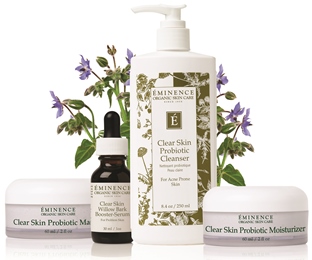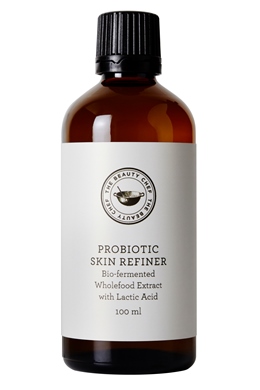Move over gut! Ashleigh Sharman discovers probiotic benefits are no longer limited to digestive health.
We’ve come a long way in our knowledge of the gut, its wonderful flora garden and how important the correct balance can aid overall health — so much so that the words probiotic and prebiotic are now commonplace with supplement sales higher than they’ve ever been.
The Health and Wellness Trends Database reported consumer awareness of probiotics increased by 46 per cent from 2004 to 2009, also pushing growth of the global probiotic products market worth in excess of $32.6 billion in 2014.
But while clients may be downing a daily supplement or including live cultures such as yoghurt in their diet, can topical application deliver the same benefits?

“Probiotics are commonly known for their beneficial role in gut function and health. However, emerging research further proves that probiotic benefits are not limited to digestive health. What we know now is that signals from our gut flora are conveyed throughout the body and interact with flora in our skin and mucosa,” explains Matoyla Kollaras, Director of Skin Factors.
“We often forget that our skin is covered in commensal bacteria in a delicate balance and so we need to respect this flora else there is an imbalance — causing everything from body odour, breakdown of skin immunity and so vulnerability to external pathogenic attack, to exacerbated acne and rosacea conditions etc.
“We also must keep in mind that the skin has an acid mantle, not alkaline mantle, so it helps that skin care is created to support the proper pH of skin. Probiotics are also acidic by nature,” Matoyla adds noting a study by the Journal of Dermatological Science which suggested that applying probiotics could reduce the levels of acne-causing bacteria without harming the good bacteria on the skin.
Tamara Eacott, Director of Green Living Cosmetics, says clients should expect very similar results externally as when taking probiotics internally.
“The skin, like the gut, is a complex system of bacteria’s that are usually in harmonious balance. Hormones, incorrect products and environmental processes can disrupt the delicate good/bad bacteria balance.
“Probiotics are designed to assist the good bacteria to be dominant and hence help the skin to fight break out and heal more rapidly,” she says, highlighting the use of dairy-derived probiotics in Eminence Organics’ Clear Skin Collection.

Similarly, OmVeda founder Yasmin Sadikot highlights the ability of natural enzymes found in milk and yoghurt to activate herbs found in the brand’s Vegetable Peel Mask.
Taking the concept of ‘inner health for outer beauty’ to enhance a product line even further, The Beauty Chef recently launched its Probiotic Skin Refiner — a multi-purpose exfoliant, skin hydrator and collagen booster, rich in probiotics and lactic acid, extracted during the bio-fermentation of the brand’s renowned Inner Beauty Powders.

“As we age, the skin thins and studies have shown show that AHAs such as lactic acid help increase skin thickness, while helping to reverse skin damage caused by long term UV exposure,” says founder Carla Oates.
“While the benefits of ingesting probiotics are well known, as a topical skincare product, the Lactobacillis probiotics found in the refiner help balance the skin’s natural flora, strengthen the skin’s barrier system and boost the skin’s immune health.
“Additionally, bio fermented lactic acid gently exfoliates the skin, increases the skin’s natural moisturising abilities and stimulates collagen synthesis,” Carla adds.
We can conclude that our skin is indeed what we eat and with greater knowledge of how our gut health can be read on our skin it doesn’t hurt, in fact it’s beneficial, to take a double-pronged approach when it comes to probiotics and strengthen the all important skin-gut connection.




